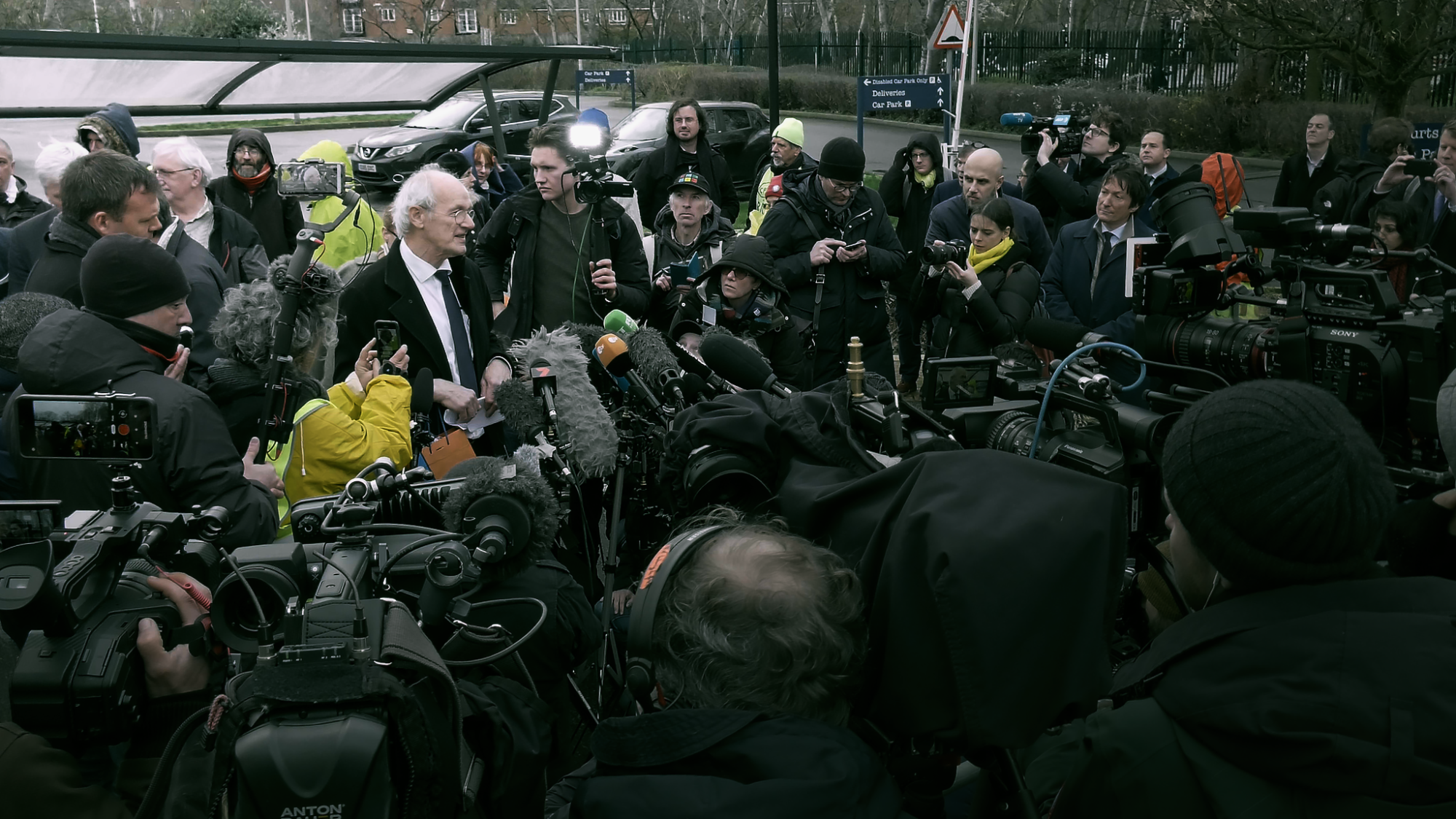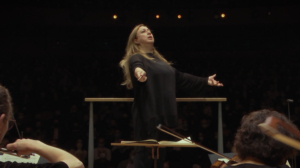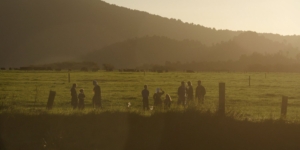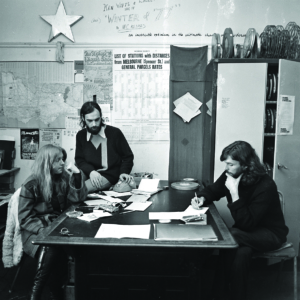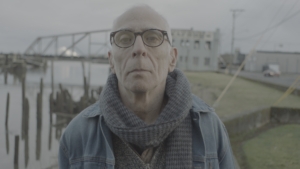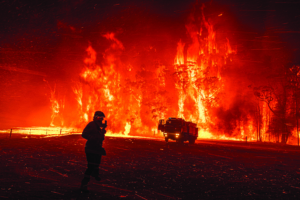Across the second half of 2010, in concert with a number of major world newspapers, the online media organisation WikiLeaks published hundreds of thousands of documents that had been stored within secret American defence and state department networks.[1]These documents were provided to WikiLeaks by army whistleblower Chelsea Manning, who was later imprisoned for seven years for her role in the publication. See Matthias von Hein, ‘WikiLeaks “Cablegate” 10 Years On: An Unvarnished Look at US Foreign Policy’, Deutsche Welle, 28 November 2020, <https://www.dw.com/en/wikileaks-cablegate-10-years-on-an-unvarnished-look-at-us-foreign-policy/a-55755239>, accessed 1 September 2021. Some of the files’ revelations included vast numbers of unreported civilian deaths in the respective wars being conducted by the United States in Afghanistan and Iraq;[2]See David Leigh, ‘Afghanistan War Logs: Secret CIA Paramilitaries’ Role in Civilian Deaths’, The Guardian, 26 July 2010, <https://www.theguardian.com/world/2010/jul/25/afghanistan-civilian-deaths-rules-engagement>, accessed 1 September 2021. a secret American bombing campaign in Yemen;[3]See Justin Elliott, ‘WikiLeaks: U.S. Bombs Yemen in Secret’, Salon, 29 November 2010, <https://www.salon.com/2010/11/29/wikileaks_yemen_revelations/>, accessed 1 September 2021. Western military complicity in torture, rape and murder of prisoners of war by Iraqi authorities;[4]See ‘WikiLeaks Reveals Iraqi Torture, Deaths’, ABC News, 23 October 2010, <https://www.abc.net.au/news/2010-10-23/wikileaks-reveals-iraqi-torture-deaths/2308598>; and Sebastian Gjerding, Anton Geist & Charlotte Aagaard, ‘Danish Forces Involved in Giving Over Detainees to Abusive Police’, Dagbladet Information, 23 October 2010, <https://www.information.dk/udland/2010/10/danish-forces-involved-in-giving-detainees-to-abusive-police>, accessed 1 September 2021. and corruption and favourable political interventions sought out by multinational corporations.[5]See, for example, Sarah Boseley, ‘WikiLeaks Cables: McDonald’s Used US to Put Pressure on El Salvador’, The Guardian, 22 December 2010, <https://www.theguardian.com/business/2010/dec/21/wikileaks-cables-mcdonalds-us-el-salvador>; Sarah Boseley, ‘WikiLeaks Cables: Pfizer “Used Dirty Tricks to Avoid Clinical Trial Payout”’, The Guardian, 10 December 2010, <https://www.theguardian.com/business/2010/dec/09/wikileaks-cables-pfizer-nigeria>; and Nitasha Tiku, ‘WikiLeaks Exposes Boeing’s Secret Sales Force: U.S. Diplomats’, New York, 3 January 2011, <https://nymag.com/intelligencer/2011/01/wikileaks_exposes_boeings_secr.html>, all accessed 1 September 2021. Further revelations by the online publication have exposed flawed plans for an Australian internet filter;[6]See David Kravets, ‘WikiLeaks Exposes Australian Web Blacklist’, Wired, 19 March 2009, <https://www.wired.com/2009/03/wikileaks-expos/>, accessed 1 September 2021. the long-term imprisonment of civilians, including minors, within the Guantánamo Bay detention facility;[7]See David Leigh et al., ‘Guantánamo Leaks Lift Lid on World’s Most Controversial Prison’, The Guardian, 25 April 2011, <https://www.theguardian.com/world/2011/apr/25/guantanamo-files-lift-lid-prison>, accessed 1 September 2021. and spying operations by the US National Security Agency on international leaders.[8]See Winter Chase, ‘WikiLeaks: NSA Spied on UN Secretary General, Merkel’, Deutsche Welle, 23 February 2016, <https://www.dw.com/en/wikileaks-nsa-spied-on-un-secretary-general-merkel/a-19066958>, accessed 1 September 2021.
While those and other documents have been provided by myriad anonymous sources – the protection of their identities being a key aspect of WikiLeaks’ design – the 2010 publications instantly made the website’s Australian founder, Julian Assange, a global household name.[9]See Bernard Lagan, ‘International Man of Mystery’, The Sydney Morning Herald, 10 April 2010, <https://www.smh.com.au/technology/international-man-of-mystery-20100409-ryvf.html>, accessed 1 September 2021. Almost as quickly, he became a wanted man – though not, ostensibly, for the publications that had so angered the US government and intelligence agencies, but for a Swedish rape investigation, aspects of which remain murky to this day.[10]See Lissa Johnson, ‘Weaponising Rape Myths and Consent in the Hunt for Julian Assange’, New Matilda, 23 September 2019, <https://newmatilda.com/2019/09/23/weaponising-rape-myths-and-consent-in-the-hunt-for-julian-assange/>, accessed 31 August 2021. Thus began a series of legal battles that have cumulatively lasted over a decade, in which time Assange has been first locked down in a suite in the Ecuadorian embassy in London, where he sought asylum, and subsequently – upon being removed from the embassy in April 2019 and arrested by UK police[11]See Caroline Davies, Simon Murphy & Damien Gayle, ‘Julian Assange Faces US Extradition After Arrest at Ecuadorian Embassy’, The Guardian, 12 April 2019, <https://www.theguardian.com/uk-news/2019/apr/11/julian-assange-arrested-at-ecuadorian-embassy-wikileaks>, accessed 1 September 2021. – locked up in maximum-security jail HMP Belmarsh. While in prison, Assange has been the subject of an extradition request from the US, which is seeking to prosecute him under the Espionage Act for WikiLeaks’ publication of the 2010 documents; if extradited and found guilty, Assange will almost certainly spend the rest of his life behind bars.[12]See Charlie Savage, ‘Assange Indicted Under Espionage Act, Raising First Amendment Issues’, The New York Times, 23 May 2019, <https://www.nytimes.com/2019/05/23/us/politics/assange-indictment.html>, accessed 31 August 2021.
In Ithaka (2021), Ben Lawrence’s documentary about the case, much of this history is condensed into the opening minutes; the film’s primary focus is instead devoted to the efforts of Assange’s elderly father, John Shipton, and fiancée, Stella Moris-Smith Robertson, as they campaign for the WikiLeaks founder’s release from prison.[13]Although district judge Vanessa Baraitser ruled against extradition in January 2021, bail has been refused and Assange continues to be imprisoned in Belmarsh pending the hearing of the US government’s appeal. See Ben Quinn, ‘Julian Assange Refused Bail Despite Judge Ruling Against Extradition to US’, The Guardian, 6 January 2021, <https://www.theguardian.com/media/2021/jan/06/julian-assange-refused-bail-despite-judge-ruling-against-extradition-to-us>, accessed 31 August 2021. Assange himself is rarely on screen, glimpsed only in archival footage and occasional phone calls with family members, while John – a plain-spoken former builder who, in filmed dialogues with the off-screen director, is in turn obliging and prickly – quickly emerges as the film’s protagonist, a man on an often arduous odyssey that, he fears, may well be hopeless.
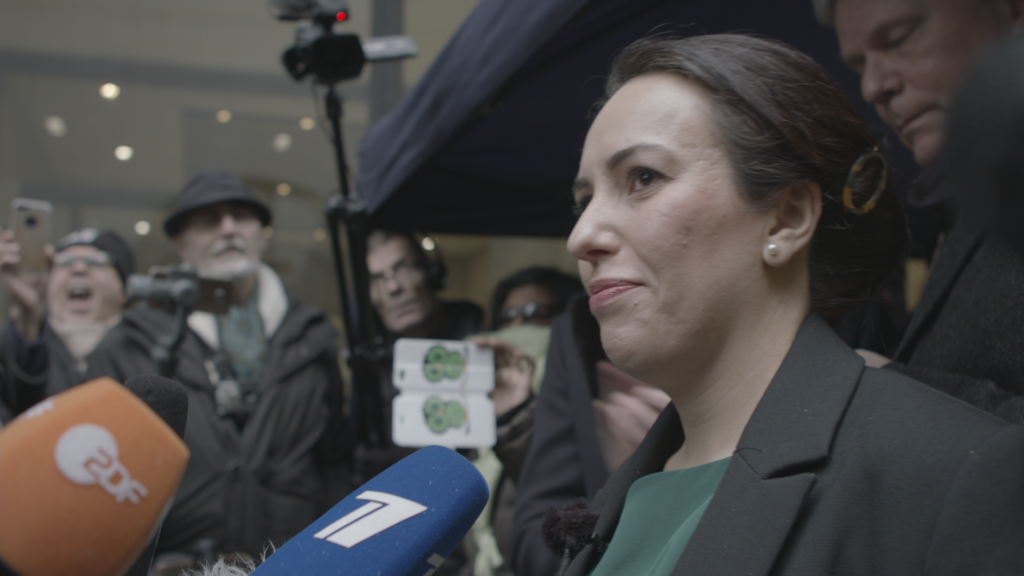
I spoke to Lawrence and producer Gabriel Shipton – the latter, John’s son and Assange’s half-brother – about the impetus behind the making of the film, the impact they hope it will have on public awareness of the case, and the nexus between art and advocacy in political documentaries.
David Heslin: Ben, at what point did you first become interested in Assange’s case, and when did the idea occur to make a documentary about it?
Ben Lawrence: I’ve been interested in Julian’s story since 2010. I became aware of him and WikiLeaks with the release of the ‘Collateral Murder’ video[14]A video filmed from an Apache helicopter in 2007 in which eleven civilians, including two Reuters journalists, are fatally shot by US forces in Baghdad, Iraq. The details of the incident were suppressed by the US military and only became known upon the publication of the video by WikiLeaks in April 2010. See Paul Daley, ‘“All Lies”: How the US Military Covered Up Gunning Down Two US Journalists in Iraq’, The Guardian, 15 June 2020, <https://www.theguardian.com/us-news/2020/jun/15/all-lies-how-the-us-military-covered-up-gunning-down-two-journalists-in-iraq>, accessed 31 August 2021. – it was such a disruption to journalism [and] such a bold way to reimagine the news and the way information is shared. In terms of the technology that Julian was able to create with the WikiLeaks site – and then the concept of it, and then actually bringing it to fruition in the way in which he did – it was just remarkable […] When Gabriel called me in August [last year], straight away I was interested. I’d followed the story, I thought it was a remarkable idea [and] the access that Gabriel brought to it seemed too good to pass up.
Gabriel, I guess it goes without saying that this is a very personal story for you. How did you come to devise the project?
Gabriel Shipton: I went to see Julian in 2019 in Belmarsh Prison. At that time, he was on suicide watch in the health wing in the prison – it was a time when he was doing really, really badly – and I felt I needed to do something, needed to get involved and use my skills I’ve developed over the years as a filmmaker[15]Gabriel Shipton previously produced Emu Runner (Imogen Thomas, 2018) and worked as an accountant on a number of films such as Mad Max: Fury Road (George Miller, 2015), Lion (Garth Davis, 2016) and Peter Rabbit (Will Gluck, 2018). […] At that time, my father was commencing these international campaigns,[16]See Samantha Hawley, ‘Andrew Wilkie and George Christensen in London to Visit Julian Assange, as Jeremy Corbyn Says UK View on Extradition Is Shifting’, ABC News, 18 February 2020, <https://www.abc.net.au/news/2020-02-18/julian-assange-and-us-extradition-deal-view-changing-in-uk/11974080>, accessed 1 September 2021. so that became the focus: how can we tell a different story, a more personal story? We’d [already] been shooting for a very long time and there was the seed of an idea there, but when I started talking to Ben, that’s when we really started developing how we were going to treat the story as [one] of a father on this journey.
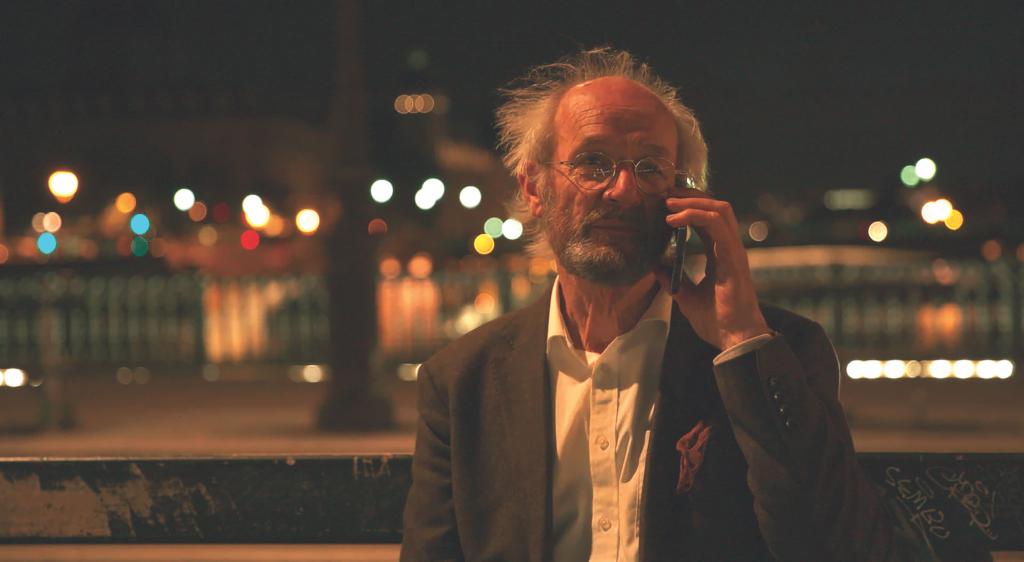
One thing that really comes through in the documentary is John’s reluctance to talk about himself, and while watching the film I found myself wondering at times whether he had a different conception of what the documentary was going to be from how it ended up. Is that something you found, Ben?
BL: Yeah, I did. I always go into a project very open-minded in terms of what [conception] the participants – particularly the ones on screen – may have of the film itself, and that tends to inform the direction of the film […] John was very clear that he wasn’t the focus of the documentary in as much [as] he was a vehicle to tell Julian’s story, but it was also the story of John’s campaign […] One of the challenges of the film was that it was happening in real time: on one hand we were telling a story that had happened over the past decade, but on the other hand we were telling a story about a man who was confronting a campaign that was unfolding in real time [as well as] the court case [at the centre of] the film.[17]The film’s narrative is structured around the lead-up to and aftermath of Assange’s January 2021 extradition hearing. So we had to capture as much as we could, and in a lot of ways the planning for what the vision of the documentary could be had to encompass what was happening day to day.
‘I always go into a project very open-minded in terms of what [conception] the participants – particularly the ones on screen – may have of the film itself, and that tends to inform the direction of the film.’
– Ben Lawrence
When I first met John, I became fascinated by who he was, and so naturally my questions revolved around where he had come from, what his younger life had been like and also what his relationship with Julian was like – and it was over time that I discovered a lot of the information that the audience needs to understand was happening in what was not said. For example, I asked John what he talks about with Julian on the phone, and he gives a very thoughtful answer that you see in the film, but [not one that] specifically answers that question. So the way in which John answers questions became very much the style of the film, in that it’s not direct; it’s an indirect journey of observing a man who’s in the middle of a campaign and answering questions for hours on end […] I think the wrestling for the narrative always takes place, and certainly took place in some part with John.
When the war logs and diplomatic cables were first released by WikiLeaks in 2010, my perception was that Assange was seen as a hero by a large number of Australians, particularly on the left. But it’s interesting how, in the decade since, that support has waned,[18]A significant (albeit arguably late) turning point in the perception of Assange among progressives occurred when WikiLeaks published tens of thousands of emails from the account of John Podesta, the chairman of Democratic Party candidate Hillary Clinton’s campaign, on the eve of the 2016 United States presidential election, a decision that was seen by many as aiding the eventual victory of her opponent, Donald Trump, although the publication of the emails has been defended by some as being in the public interest. See Thomas Frank, ‘Forget the FBI Cache; the Podesta Emails Show How America Is Run’, The Guardian, 31 October 2016, <https://www.theguardian.com/commentisfree/2016/oct/31/the-podesta-emails-show-who-runs-america-and-how-they-do-it>, accessed 1 September 2021. and how the focus on his character affected the political discourse around this case. Some supporters might think the way to push back against that would be to shift the narrative back to the important work that WikiLeaks was doing, but Ithaka kind of goes in the opposite direction by bringing the story back to the human side of things. Why is that?
BL: We constantly find ourselves talking about who Julian is and what he’s like, but what we don’t talk about is what he revealed, and I think that’s by design – I think there has been a decade-long campaign to smear his reputation. I heard [UN Special Rapporteur on Torture] Nils Melzer describe [how] Julian shone a light on a dark space, and what happened was they picked up the torch and shone it back on him as an individual, and what initially was revealed is now no longer a topic of discussion.[19]See Daniel Ryser, ‘“A Murderous System Is Being Created Before Our Very Eyes”’, Republik, 31 January 2020, <https://www.republik.ch/2020/01/31/nils-melzer-about-wikileaks-founder-julian-assange>, accessed 1 September 2021.
In light of pulling out of Afghanistan[20]See Aime Williams & Benjamin Parkin, ‘US Withdraws from Afghanistan, Bringing an End to 20-year War’, Financial Times, 31 August 2021, <https://www.ft.com/content/b2ba76a1-694b-47f9-b077-d48ad88a8cb5>, accessed 1 September 2021. and all that, I think all of those things are starting to be re-examined, re-understood, and I think the arc of history will be really interesting in the way it starts to process the WikiLeaks documents and Julian’s story. And so, in part, the film does focus on Julian as a person and does try to balance out the understanding of him through the people who love him, and I think that’s only a way of balancing what has otherwise been a long period of misunderstanding. But now we see newspapers asking for people to leak documents into their websites and into their organisations through anonymous apps and things like that, so [WikiLeaks] really has disrupted news and shown that there’s a way forward, and that it’s really our last source of knowing what’s going on in a lot of these institutions.
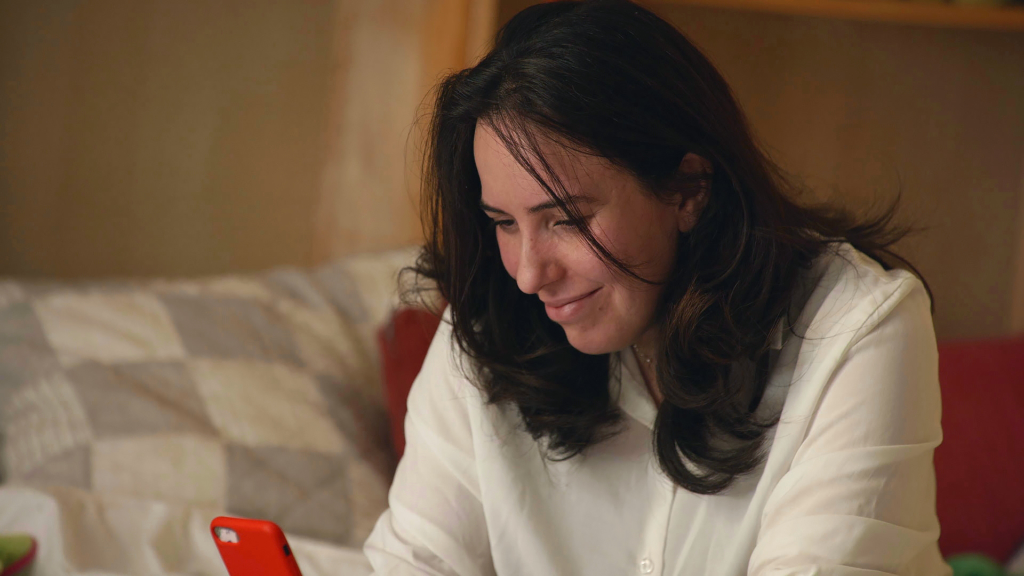
When you hear about those cases just a few years ago of the raids that happened on the ABC and on News Corp journalist Annika Smethurst,[21]See John Lyons, ‘AFP Raid on ABC Reveals Investigative Journalism Being Put in Same Category as Criminality’, ABC News, 15 July 2019, <https://www.abc.net.au/news/2019-07-15/abc-raids-australian-federal-police-press-freedom/11309810>, accessed 1 September 2021. you really start to think about how this is exactly what WikiLeaks was for – and how, without mechanisms like that, the public just doesn’t have the capacity to know what’s done in their name.
BL: Governments are trying more and more sophisticated ways of covering up, [as are] corporations, so whistleblowers and people within those organisations talking about what’s going on is going to become more and more important, [as is] the outlet for that – like you say, through journalism. All of those mechanisms stand on the side of the citizen. So where it all settles, I don’t know, but the battle’s been going along since the birth of the internet, and I think that WikiLeaks has been at the forefront of that.
As a filmmaker making documentaries, how do you square that goal of advocacy – say, if it’s a political cause you care about – with the artistic goals of documentary making?
BL: That’s really important when I’m making the film, to not preach to people. With this film and Ghosthunter [2018],[22]See Hanna Schenkel, ‘Stirring Up Spectres: Ben Lawrence’s Ghosthunter and the Documentarian’s Duty of Care’, Metro, no. 199, 2019, pp. 92–7. I was very aware that bringing people in on one cause is not enough; they need to engage with the film on multiple levels. I think, emotionally, it’s really important – particularly for this story – [to break] down a very complex, dry story, in a lot of aspects, and [give viewers] a human face, and I think John represents that so beautifully […] I’m always really fascinated and interested in an emotional journey for a story, and, no matter what – whether it’s a ‘cause’ film or not – I think my work always tends to focus on that emotion.
Can I ask you both about the mythological allusion in the film’s title?
GS: When John’s on the road and there are times when he feels that it’s all too hard, or things aren’t going his way – which is a lot of the time – he listens to this poem, ‘Ithaka’, by CP Cavafy. It’s a hundred-and-something-year-old poem that talks about Ithaka as this mythological destination that means so many different things to different people. But the poem also says that it’s more about the journey and what you arrive at Ithaka with – all the things that you’ve learned, all the friends you’ve collected, all your experiences that you arrive at your destination with. When he’s feeling that everything’s lost and everything is too hard, [John] uses that poem to rebalance himself.
BL: I see all the campaigners in that vein as well: the months and years that people on the front line [spend] campaigning for all sorts of causes, but certainly the ones we met in the UK who were campaigning for Julian – [sitting] through winters year in, year out, outside the embassy, and vigils around the world that exist for his freedom, but also [for] freedom of speech. I think it speaks to all of us, when we find something that we believe in: how do you keep going? And I think that the film lands, in that spiritual sense, at the end: that the journey is long, and that keeping that perspective through something like the story of Ithaka is what keeps [John] going, amongst other things – the love of family and the camaraderie of the other supporters and campaigners.
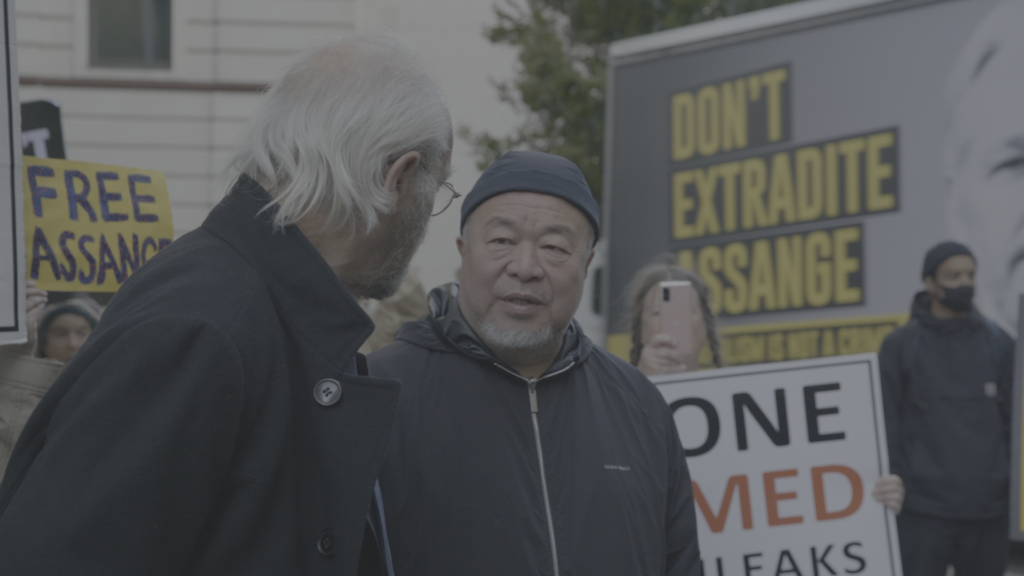
It’s quite heartbreaking hearing John talk towards the end of the film about how hopeless he feels the situation is – that the battle has already been lost because his son has already lost so much over the last ten years. Is that a feeling that either of you share, or do you find yourselves much more optimistic about the case?
GS: The adversary in this situation is the most powerful adversary that anybody could be up against, right? [How could] this 76-year-old man ever aim to change this situation, or how could any of us? But, like John says, we put energy in and we feed off what comes back, so I think it’s about accepting the challenge – whether we think it’s lost or not, we need to do something.
BL: It’s a really good question – I really worry that the price that Julian’s paid psychologically, when you read in the hearing decision of his situation, is quite dire;[23]See William Booth, ‘Suicide Risk Assange Cannot Be Extradited’, Independent.ie, 5 January 2021, <https://www.independent.ie/regionals/herald/news/suicide-risk-assange-cannot-be-extradited-39932502.html>, accessed 1 September 2021. and on a societal level, the message has been sent that if you publish truthful information that reveals war crimes or similar, this may happen to you. So there’s a price for society, but the personal price for Julian is massive: it’s a decade of his life; and, more than that, it’s time away from his family and friends and the work that he could have been doing that [could] have otherwise brought a lot of insight into the world. So, on many levels, no matter how you look at it, it’s pretty dire, and, as Gabriel said, it’s the most powerful adversary in the world – and so, [putting] that on top of what has already been paid, it doesn’t look good for that battle, for him personally and for journalism as well.
What are your hopes for the documentary? Do you think it can change the narrative around the case?
GS: I think it [provides] another rallying point around which supporters can coalesce. There’s a lot of people around the world who on a regular basis engage with this story; there’s active campaigners who very regularly – on a weekly basis – go out and campaign; and there’s politicians around the world [lobbying for Assange’s freedom]. I think a film or documentary is a really fantastic focal point for any cause that people are already engaged with, and so I think the film in that way can provide something that brings people together.
[In terms of] changing perception, I don’t know. I notice in the past twelve months that public opinion, certainly within the press, has started to shift significantly in the way [the case has been] reported, so that’s heartening. So I think it’s a slow turnaround, and the film is simply one of those things that may help get people to talk more about it.
Endnotes
| 1 | These documents were provided to WikiLeaks by army whistleblower Chelsea Manning, who was later imprisoned for seven years for her role in the publication. See Matthias von Hein, ‘WikiLeaks “Cablegate” 10 Years On: An Unvarnished Look at US Foreign Policy’, Deutsche Welle, 28 November 2020, <https://www.dw.com/en/wikileaks-cablegate-10-years-on-an-unvarnished-look-at-us-foreign-policy/a-55755239>, accessed 1 September 2021. |
|---|---|
| 2 | See David Leigh, ‘Afghanistan War Logs: Secret CIA Paramilitaries’ Role in Civilian Deaths’, The Guardian, 26 July 2010, <https://www.theguardian.com/world/2010/jul/25/afghanistan-civilian-deaths-rules-engagement>, accessed 1 September 2021. |
| 3 | See Justin Elliott, ‘WikiLeaks: U.S. Bombs Yemen in Secret’, Salon, 29 November 2010, <https://www.salon.com/2010/11/29/wikileaks_yemen_revelations/>, accessed 1 September 2021. |
| 4 | See ‘WikiLeaks Reveals Iraqi Torture, Deaths’, ABC News, 23 October 2010, <https://www.abc.net.au/news/2010-10-23/wikileaks-reveals-iraqi-torture-deaths/2308598>; and Sebastian Gjerding, Anton Geist & Charlotte Aagaard, ‘Danish Forces Involved in Giving Over Detainees to Abusive Police’, Dagbladet Information, 23 October 2010, <https://www.information.dk/udland/2010/10/danish-forces-involved-in-giving-detainees-to-abusive-police>, accessed 1 September 2021. |
| 5 | See, for example, Sarah Boseley, ‘WikiLeaks Cables: McDonald’s Used US to Put Pressure on El Salvador’, The Guardian, 22 December 2010, <https://www.theguardian.com/business/2010/dec/21/wikileaks-cables-mcdonalds-us-el-salvador>; Sarah Boseley, ‘WikiLeaks Cables: Pfizer “Used Dirty Tricks to Avoid Clinical Trial Payout”’, The Guardian, 10 December 2010, <https://www.theguardian.com/business/2010/dec/09/wikileaks-cables-pfizer-nigeria>; and Nitasha Tiku, ‘WikiLeaks Exposes Boeing’s Secret Sales Force: U.S. Diplomats’, New York, 3 January 2011, <https://nymag.com/intelligencer/2011/01/wikileaks_exposes_boeings_secr.html>, all accessed 1 September 2021. |
| 6 | See David Kravets, ‘WikiLeaks Exposes Australian Web Blacklist’, Wired, 19 March 2009, <https://www.wired.com/2009/03/wikileaks-expos/>, accessed 1 September 2021. |
| 7 | See David Leigh et al., ‘Guantánamo Leaks Lift Lid on World’s Most Controversial Prison’, The Guardian, 25 April 2011, <https://www.theguardian.com/world/2011/apr/25/guantanamo-files-lift-lid-prison>, accessed 1 September 2021. |
| 8 | See Winter Chase, ‘WikiLeaks: NSA Spied on UN Secretary General, Merkel’, Deutsche Welle, 23 February 2016, <https://www.dw.com/en/wikileaks-nsa-spied-on-un-secretary-general-merkel/a-19066958>, accessed 1 September 2021. |
| 9 | See Bernard Lagan, ‘International Man of Mystery’, The Sydney Morning Herald, 10 April 2010, <https://www.smh.com.au/technology/international-man-of-mystery-20100409-ryvf.html>, accessed 1 September 2021. |
| 10 | See Lissa Johnson, ‘Weaponising Rape Myths and Consent in the Hunt for Julian Assange’, New Matilda, 23 September 2019, <https://newmatilda.com/2019/09/23/weaponising-rape-myths-and-consent-in-the-hunt-for-julian-assange/>, accessed 31 August 2021. |
| 11 | See Caroline Davies, Simon Murphy & Damien Gayle, ‘Julian Assange Faces US Extradition After Arrest at Ecuadorian Embassy’, The Guardian, 12 April 2019, <https://www.theguardian.com/uk-news/2019/apr/11/julian-assange-arrested-at-ecuadorian-embassy-wikileaks>, accessed 1 September 2021. |
| 12 | See Charlie Savage, ‘Assange Indicted Under Espionage Act, Raising First Amendment Issues’, The New York Times, 23 May 2019, <https://www.nytimes.com/2019/05/23/us/politics/assange-indictment.html>, accessed 31 August 2021. |
| 13 | Although district judge Vanessa Baraitser ruled against extradition in January 2021, bail has been refused and Assange continues to be imprisoned in Belmarsh pending the hearing of the US government’s appeal. See Ben Quinn, ‘Julian Assange Refused Bail Despite Judge Ruling Against Extradition to US’, The Guardian, 6 January 2021, <https://www.theguardian.com/media/2021/jan/06/julian-assange-refused-bail-despite-judge-ruling-against-extradition-to-us>, accessed 31 August 2021. |
| 14 | A video filmed from an Apache helicopter in 2007 in which eleven civilians, including two Reuters journalists, are fatally shot by US forces in Baghdad, Iraq. The details of the incident were suppressed by the US military and only became known upon the publication of the video by WikiLeaks in April 2010. See Paul Daley, ‘“All Lies”: How the US Military Covered Up Gunning Down Two US Journalists in Iraq’, The Guardian, 15 June 2020, <https://www.theguardian.com/us-news/2020/jun/15/all-lies-how-the-us-military-covered-up-gunning-down-two-journalists-in-iraq>, accessed 31 August 2021. |
| 15 | Gabriel Shipton previously produced Emu Runner (Imogen Thomas, 2018) and worked as an accountant on a number of films such as Mad Max: Fury Road (George Miller, 2015), Lion (Garth Davis, 2016) and Peter Rabbit (Will Gluck, 2018). |
| 16 | See Samantha Hawley, ‘Andrew Wilkie and George Christensen in London to Visit Julian Assange, as Jeremy Corbyn Says UK View on Extradition Is Shifting’, ABC News, 18 February 2020, <https://www.abc.net.au/news/2020-02-18/julian-assange-and-us-extradition-deal-view-changing-in-uk/11974080>, accessed 1 September 2021. |
| 17 | The film’s narrative is structured around the lead-up to and aftermath of Assange’s January 2021 extradition hearing. |
| 18 | A significant (albeit arguably late) turning point in the perception of Assange among progressives occurred when WikiLeaks published tens of thousands of emails from the account of John Podesta, the chairman of Democratic Party candidate Hillary Clinton’s campaign, on the eve of the 2016 United States presidential election, a decision that was seen by many as aiding the eventual victory of her opponent, Donald Trump, although the publication of the emails has been defended by some as being in the public interest. See Thomas Frank, ‘Forget the FBI Cache; the Podesta Emails Show How America Is Run’, The Guardian, 31 October 2016, <https://www.theguardian.com/commentisfree/2016/oct/31/the-podesta-emails-show-who-runs-america-and-how-they-do-it>, accessed 1 September 2021. |
| 19 | See Daniel Ryser, ‘“A Murderous System Is Being Created Before Our Very Eyes”’, Republik, 31 January 2020, <https://www.republik.ch/2020/01/31/nils-melzer-about-wikileaks-founder-julian-assange>, accessed 1 September 2021. |
| 20 | See Aime Williams & Benjamin Parkin, ‘US Withdraws from Afghanistan, Bringing an End to 20-year War’, Financial Times, 31 August 2021, <https://www.ft.com/content/b2ba76a1-694b-47f9-b077-d48ad88a8cb5>, accessed 1 September 2021. |
| 21 | See John Lyons, ‘AFP Raid on ABC Reveals Investigative Journalism Being Put in Same Category as Criminality’, ABC News, 15 July 2019, <https://www.abc.net.au/news/2019-07-15/abc-raids-australian-federal-police-press-freedom/11309810>, accessed 1 September 2021. |
| 22 | See Hanna Schenkel, ‘Stirring Up Spectres: Ben Lawrence’s Ghosthunter and the Documentarian’s Duty of Care’, Metro, no. 199, 2019, pp. 92–7. |
| 23 | See William Booth, ‘Suicide Risk Assange Cannot Be Extradited’, Independent.ie, 5 January 2021, <https://www.independent.ie/regionals/herald/news/suicide-risk-assange-cannot-be-extradited-39932502.html>, accessed 1 September 2021. |
